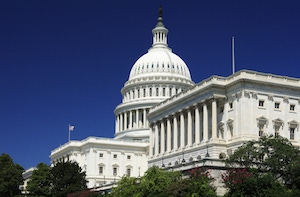Great American Outdoors Act advances to President’s desk
President expected to sign bill providing more federal authority over conservation decisions on federal lands.

The U.S. House of Representatives passed the Great American Outdoors (GAO) Act on Wednesday, and now it heads to President Donald Trump, who is expected to sign the bipartisan legislation that will fully and permanently fund the Land & Water Conservation Fund (LWCF) and provide much-needed funding for the $12 billion deferred maintenance backlog at national parks.
The GAO Act creates more than $17 billion in new mandatory spending through funding for federal agencies’ deferred maintenance backlog and by converting funding for the LWCF at a level of $900 million per year into perpetuity. The bill gives federal agencies free rein to spend a minimum of $360 million per year of LWCF funding solely to acquire new private land without any oversight from Congress.
The Senate passed the GAO Act in June 2020.
House agriculture subcommittee on conservation and forestry chair Abigail Spanberger (D., Va.) welcomed the approval of funding to address the billions of dollars in deferred maintenance across the country’s national forests.
“Today’s vote builds upon the subcommittee’s efforts to respond to the deferred maintenance needs of the U.S. Forest Service,” Spanberger said. “The Great American Outdoors Act recognizes healthy and updated infrastructure as key to securing the conservation, economic and social benefits people receive from our national forests. The bill will provide much-needed funding for critical maintenance and repairs, and I am happy to see it pass on to the President’s desk today.”
Although it found widespread support in both the House and Senate, it was not supported by many members of Congress from western states or by the National Cattlemen’s Beef Assn. (NCBA) and the Public Lands Council (PLC).
Rep. Dan Newhouse (R., Wash.) criticized the House for not holding a committee hearing on the bill and for not allowing any amendments for consideration. “Bad process yields bad policy,” he said in comments on the floor.
“The Great American Outdoors Act sets a $900 million-per-year mandate into perpetuity. One of the primary purposes of this funding will be spent to purchase more federal land,” Newhouse said. "By turning this funding into mandatory spending, the legislation cedes congressional authority by handing it over to unelected bureaucrats, thereby removing critical oversight from Congress and allowing special-interest groups and career government employees to determine the scope and scale of future federal land grabs. As an appropriator and as a steward of the people’s hard-earned taxpayer dollars, this is truly unacceptable."
Newhouse added that his constituents in central Washingtonians understand how burdensome it can be to work through the federal government’s bureaucratic red tape of land-use policies. “This bill will exacerbate those burdens and could lead to less effective conservation efforts on the ground,” he warned.
Kaitlynn Glover, NCBA executive director of natural resources and PLC executive director, called passage of the GAO act a sad day for public lands and the American taxpayer.
“With today’s approval of the GAO Act, the House has chosen to willingly relinquish their responsibility to engage in important land conservation decisions far into the future. The bill will allow virtually unrestricted spending for lands and waters across the United States that will be added to a federal estate that is already in disrepair. The 310 members of the House who supported this bill today sentenced these lands to a bleak future, complete with the expectation that these lands will be added to the deferred maintenance backlog in a not-so-distant future. The ranching community urges President Trump to veto this reckless excuse for a land management bill."
Prior to the Senate vote, PLC and NCBA sent a letter signed by 48 livestock and natural resources groups highlighting the conflict by pairing the mounting disrepair of current land under federal control and allowing rampant acquisition without accounting for management of future land acquisitions.
About the Author(s)
You May Also Like




.png?width=300&auto=webp&quality=80&disable=upscale)
